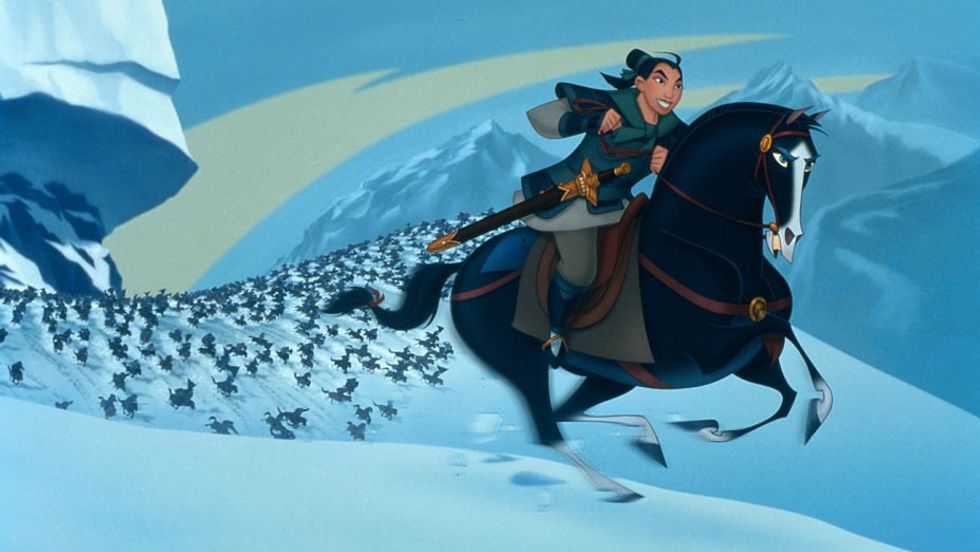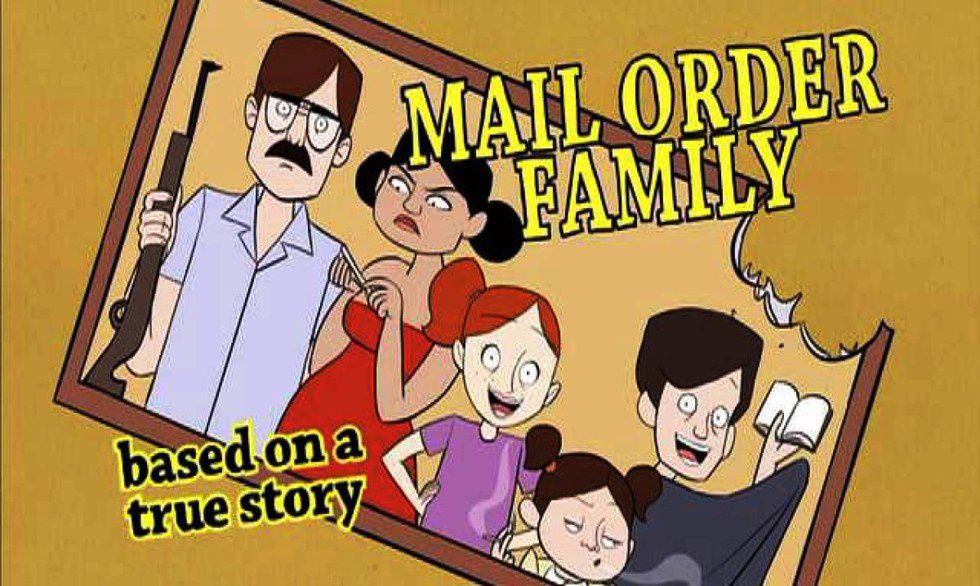Representation is a hot—and heated—topic right now in video games, books, and any form of media that could fit under the umbrella of “film and television", from the Hollywood big screen to network sitcoms, to original programming developed by Amazon, Netflix, and Hulu. People from underrepresented groups (also, people belonging to a variety of minority groups at once) are fighting to be shown fairly in media in all their diversity and complexity. Gender, sexuality, ethnicity, culture, class, disability—the population of the United States alone has such a rich tapestry of people who want to be reflected in the media they consume. The stories we absorb, the worlds we see, and the characters we learn to empathize with or revile affect us and speak to us. Otherwise, why would be bother with them? And if the writers, directors, and artists who create these stories don’t bother to strive for the diversity and inclusion that can be achieved with their skills, why should we, the ignored audience, support them?
Current events have moved me to write about this now. In recent years we’ve seen bold attempts on the small screen, that garner both praise and criticism,to reinvigorate and mix up an entertainment landscape that has largely been white, heterosexual, and male-dominated. Some examples are Jane the Virgin, Glee, Fresh Off the Boat, Black-ish, How to Get Away with Murder, Orange is the New Black, Empire, and Luke Cage.
And yet, for every piece of visual art that shines, something comes along that knocks that hope down. Something happens that shows you that wishes for stories that reflect your children and reflect your life, are not taken for granted as wishes that must be catered to. You have to point out to Hollywood that you exist—and so does your pain.
I’m talking specifically about the latest hits to Asian American representation: Disney’s Mulan live-action movie and an NBC sitcom. One is on its way to a 2018 release; the other is dead.
Disney's 1998 film Mulan
On October 10, an anonymous writer on the blog Angry Asian Man posted an open letter to the creators of Disney’s The Legend of Mulan, a live-action movie that will reportedly blend elements of the original 1998 Disney animated movie Mulan, and the original Chinese ballad. The writer claimed to have read the spec script, and the findings were stomach-churning: the heroine Mulan, dynamic teenage warrior of folklore, a revered figure in Chinese culture and a role model for countless Disney fans, had been shoved to the side in her own story. Half of the script was centered on a 30-something white male womanizing merchant who shows up, finds Mulan attractive, decides to help the Chinese Imperial Army in order to protect Mulan, and winds up killing the main enemy.
Just to make things clear: an amazing teenage, female, Asian protagonist is side-lined in her own story by a white guy nearly twice her age who has designated himself as her protector. And he’s been made up specifically for this movie. There is no such character in either the animated Disney film or the ancient ballad.
It sounds insane. There’s no way anyone could come up with this cockamamie idea and think it inoffensive, much less good.
Later that same day, the Vulture published a follow up, with a source saying that the spec script (a kind of first draft) had been reworked by different writers, and that fans could rest easy:
“Mulan is and will always be the lead character in the story, and all primary roles, including the love interest, are Chinese.”
This level of panic over such an absurd storytelling strategy seems overblown. But then you remember Marvel’s Dr Strange movie and its erasure of its story’s origins in Tibet. You remember that they cast a white actress as Stephen Strange’s Tibetan mentor. You remember that Paramount’s Ghost in the Shell movie cast a white woman as the lead character Kusanagi when the story comes from an animated film beloved of Japanese media.
It hurts whenever I hear of white washing or erasure of any kind in popular storytelling, but one that really ripped in to me actually happened a couple weeks, before the hubbub over Mulan. As if the potential mangling of a childhood icon wasn’t terrible enough, I first had to deal with the fact that a part of my own heritage was going to be held up for ridicule.
Show card for the series Mail Order Family.
On September 28, NBC announced that it was developing a half-hour comedy from Jackie Clarke, a writer and producer on the network’s comedy series Superstore. The new comedy would be called Mail Order Family and follow “a widowed single father who orders a mail order bride from the Philippines to help raise his two preteen daughters.”
Order. You can order a pair of shoes or a dvd in the mail; why not a wife/nanny for your kids?
The stories of Filipina mail order brides deserve to be heard, but chances are, the show that would have been created would not have done so respectfully. Mail Order Family shares a title and plot with Clarke’s 2002 one-woman show of the same name—both are supposed to be based on Clarke’s childhood in Massachusetts. In a 2002 article with Observer, Clarke says that after her mother died when she was a young child, “my dad was in the dating scene for like two seconds and then decided to order my stepmom from a catalog. Yes, from the Philippines. I’m so serious—it’s insane.”
The article goes on explain that eventually her father ordered another mail order bride without divorcing the first one, and that (Ms. Clarke claims) he liked his wives to be “barefoot and at home.”
“He’s in the Philippines now,” Clarke continues. “He lives there, so he has all of these relationships with prostitutes, but he’s like, ‘I don’t sleep with them, Jackie: You don’t know what you can catch. I don’t want any syphilis or anything.’ He’s there for the women, and you can live like a king over there. He’s middle-aged, Caucasian, attractive, 62 years old. Oh my God, they love him …. I love that guy sooo much, but he is totally nuts.”
And this is the type of perspective that was going to be at work in the series?
Understandably, there was considerable backlash, with Gabriela USA, an organization fighting for the welfare of Filipino women, leading a petition to have it canceled. The petition articulated what was so wrong about this series: it would tell, from a white American perspective, a story whose roots lie in exploitation and the threat of real violence against women being trafficked for the pleasure of American men . As explained in the petition:
“The mail order bride industry in the Philippines is rooted in historical U.S. colonial occupation of the Philippines, feudal-patriarchal view of Filipinas, and current neo-colonial economic policies that have impoverished the Filipino people.
The mail order bride industry exploits and trafficks women who are economically disadvantaged and living in poverty. Filipino women make up one of the largest segments of mail-order brides in the world. Due to an economy ravaged by U.S. imperialist economic policies dictated upon the Philippines, Filipino women lack employment opportunities in the country and are forced to leave their homeland to support themselves and their families.”
Mail order brides are vulnerable to becoming sex slaves and unpaid domestic help, with the threat of additional violence because of how these arranged marriage are inherently imbalanced in power. Being in a foreign country with no financial independence and an abusive husband is a terrifying situation.
NBC announced on September 30 that the show had been cancelled, but the damage is done: the fact that anyone with authority listened to this premise and found a story based on human trafficking to be a promising sitcom speaks volumes to the ignorance, insensitivity, and lack of diversity still embedded in today's entertainment industry.
And to think, this show was announced mere days before Filipino American History Month.
I am half-Filipino. My mother is a Filipina, and I cannot explain the pride and admiration I feel when I think about what she had to give up to come to the U.S. and build a better life. Her head for numbers and her work ethic are phenomenal. She doesn’t say everything I’d like her to, but she shows her love in actions, because doing is what counts. She shares her Filipino food, her pancit and ube and adobo. She goes years without seeing her sister and brothers in person. Her English is imperfect, her children do not know Tagalog, and if we ever manage to learn, she’ll have to live with the fact that her childhood tongue will be imperfect and heavily accented in her son and daughter’s mouths. She is imperfect. She is amazing.
If this series had lived, someone with no knowledge of Filipinas outside of Mail Order Family could have met my mother and wondered if she was anything like that crazy Filipina mail-order nanny on TV that was the butt of so many jokes. And that kills me.
So if it ever comes up in conversation why the blacks/gays/Latinos/Muslims/Asians or any other minority are whining about erasure and negative, inaccurate representations of themselves, just say this:
Stories are for people. People need stories. It’s important to see and empathize with stories about many types of people, and for those underrepresented people to see themselves in stories. If stories don’t reflect people—all people—what the hell is the point?













































